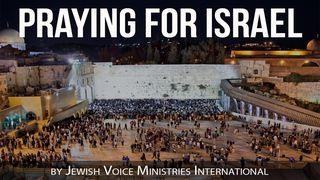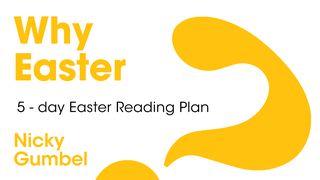30 Days in the PsalmsSýnishorn

Day #6: Psalm 24
Psalm 24 is a sung prayer. It’s a song of David that was lifted up by pilgrims who were entering Jerusalem to worship at the temple. There’s a call-and-response feeling to it, as if a worship leader and a congregation are taking turns singing and praying. The prayer has three parts, and the first two weave in familiar themes that we’ve already seen in Book I of the Psalms.
Part one (vv. 1–2) is an exultant declaration of the creator God’s rule over all that he has made, echoing Psalms 8 and 19. The whole earth and all its inhabitants—human and nonhuman—belong to the Lord. We’re seeing a prayer pattern emerge in the Psalms—praise of God’s reign is a great place to begin as we enter a time of prayer.
Part two (vv. 3–6) asks the question we heard in Psalm 15: Who can be in the presence of the holy God? The answer (v. 4) sounds a lot like the portrait of the “blessed” or “happy” person in Psalm 1: “Those who have clean hands and pure hearts, who do not lift up their souls to what is false, and do not swear deceitfully” (NRSV). This is the proper condition of worshipers who are preparing to enter the Lord’s holy presence. The posture that leads to that condition is described twice in verse 6 as “seeking” the Lord. It’s the recognition that clean hands and pure hearts are possible only through the sanctifying work of God himself. For worshipers who seek that purifying work of God in their lives, the promise is that they will receive it: “They will receive blessing from the Lord, and vindication from the God of their salvation” (v. 5).
Those first two movements—recognition of God’s rule and submission to God’s sanctifying work—properly prepare the praying people to enter God’s temple. It’s interesting that the singing, praying pilgrims stand at the gates of Jerusalem and call on the doors to be opened for the “King of glory” (vv. 7–10). It’s as if they are picturing the Lord himself entering the city with them—not isolated inside the temple, but inhabiting the very praises of his people and accompanying them as they exult him. Twice the question is asked, “Who is this King of glory?” And twice it’s answered by the praising pilgrims: “The Lord, strong and mighty, the Lord, mighty in battle” (v. 8) and “the Lord of hosts” (v. 10). This scene finds its fullest expression in the Gospels, as Jesus the Lord of lords and King of kings enters Jerusalem surrounded by pilgrims who were probably singing this very psalm (Matthew 21; Mark 11; Luke 19; John 12).
Today is a good day to call out to God with a recognition of his rule over creation and over your life, to submit to his sanctifying work in your life, and then to worship him as the King of glory!
Ritningin
About this Plan

Most of Scripture is God’s Word to human beings, but the Book of Psalms records human speech to God. These prayers and songs demonstrate the determination of people of faith to remain connected to God, regardless of their circumstances. Confession, lament, pleading, thanksgiving, praise—all the elements of our communication with God are present. The 150 Psalms in the collection are divided into 5 “books.” During these 30 days, we’ll pray through 6 psalms from each book. Some will be very familiar, others perhaps less so; all will direct our gaze to the God who loves us.
More








